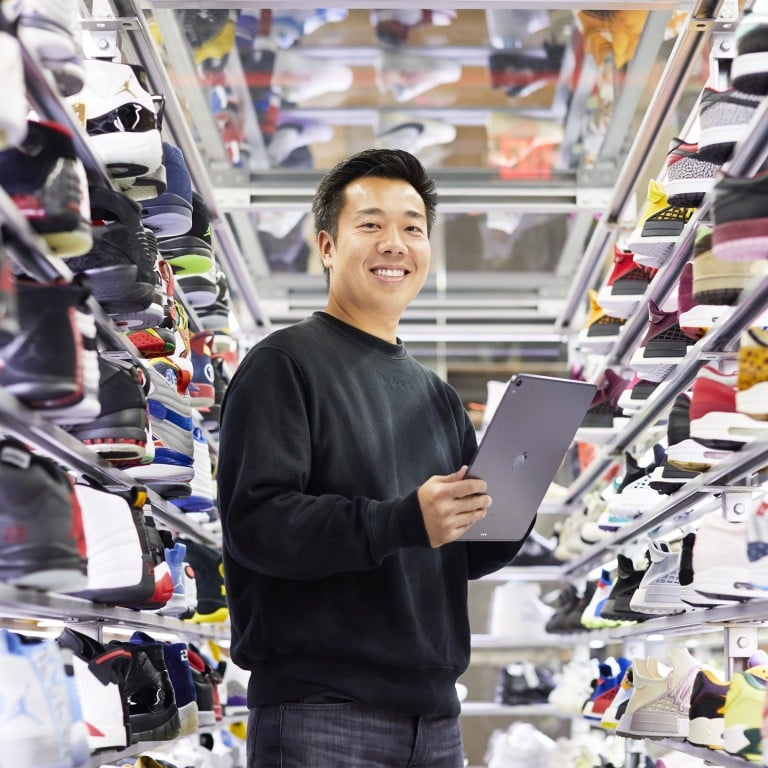
How Goat sneaker marketplace founders went from roommates to global footwear industry disrupters
- Footlocker just invested US$100m into the online company founded by serial entrepreneurs Eddy Lu and Daishin Sugano
- In an industry filled with fake goods, Goat prides itself in being the middleman, ensuring buyers are sent authentic sneakers
Black Friday 2015 is a date that still haunts Eddy Lu. The post-Thanksgiving shopping event, the biggest date on the American retail calendar, almost broke Lu’s fledgling company, online sneaker marketplace Goat.
Goat, an acronym of “Greatest of all time”, launched in July 2015. The days leading up to that Black Friday had seen poor and even non-existent sales on the website.
Coffee table book for sneakerheads charts the history of trainers in 650 stunning pages
So Goat’s Los Angeles-based marketing team posted a special Black Friday promotion on Instagram, with the caption: “This Friday only: get the Yeezy Boost 350 Pirate for retail and other kicks at up to 75 per cent off.”
At the time, the Kanye West-designed Yeezy Boost 350 was one of the world’s hottest sneaker and the post quickly went viral. But almost as quickly, it created huge problems for Lu, 37, and his co-founder Daishin Sugano, 38.
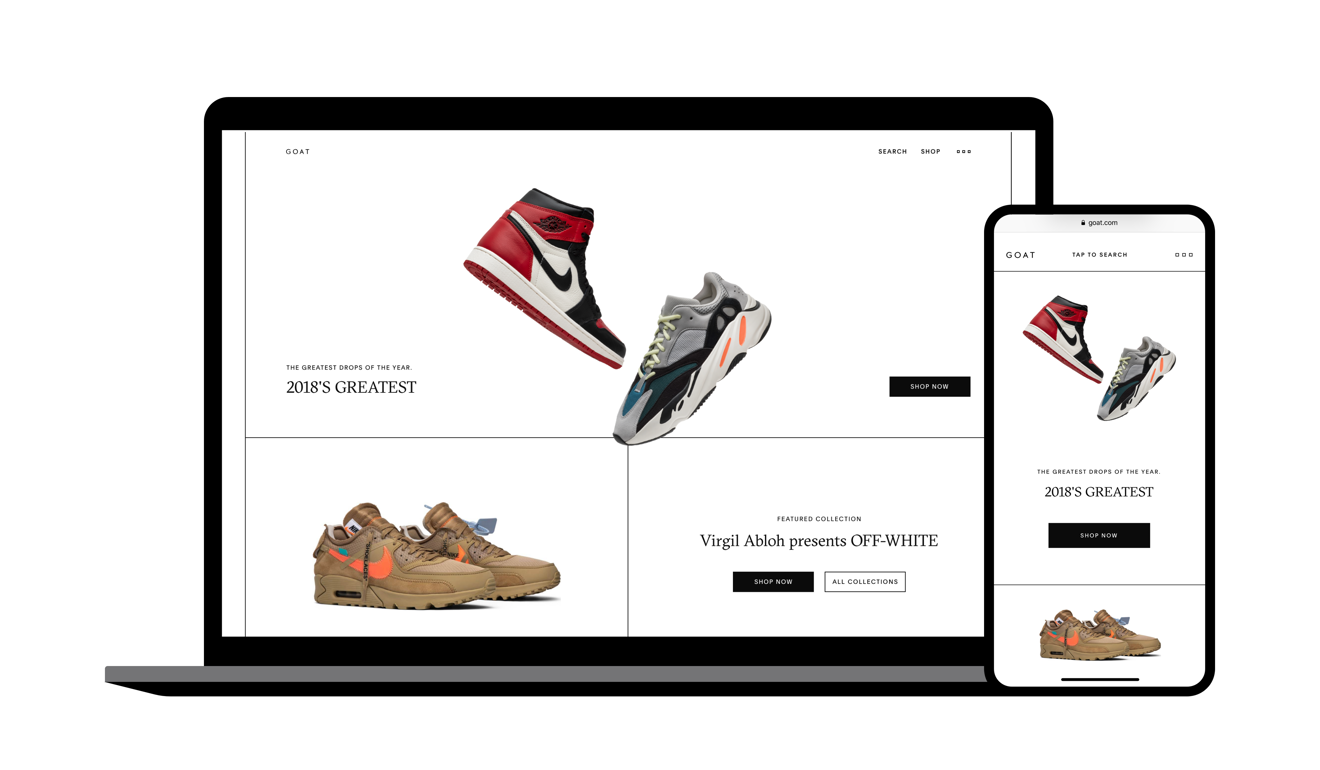
Come Black Friday, so many people rushed to buy the Yeezys that the site crashed, and the still green sneaker start-up became the focus of online rage mobs.
“[The] Instagram post on that day was [receiving] one hate comment a second. There was thousands of comments. One of our investors called us and was like, ‘Is everything OK?’ And I was like, ‘Not really, we're trying to answer all these customer service messages and failing,’” Lu recalls on a recent trip to Hong Kong. But Goat’s worst moment became a defining one.
“Our investor said to us, ‘It’s better to be hated than unknown’, and it was true. Even though it was so painful, I would have done that a thousand times over, because it put us on the map. Even though everyone downloaded our app and hated us at that moment, they understood our value proposition. These guys authenticate sneakers,” he says.
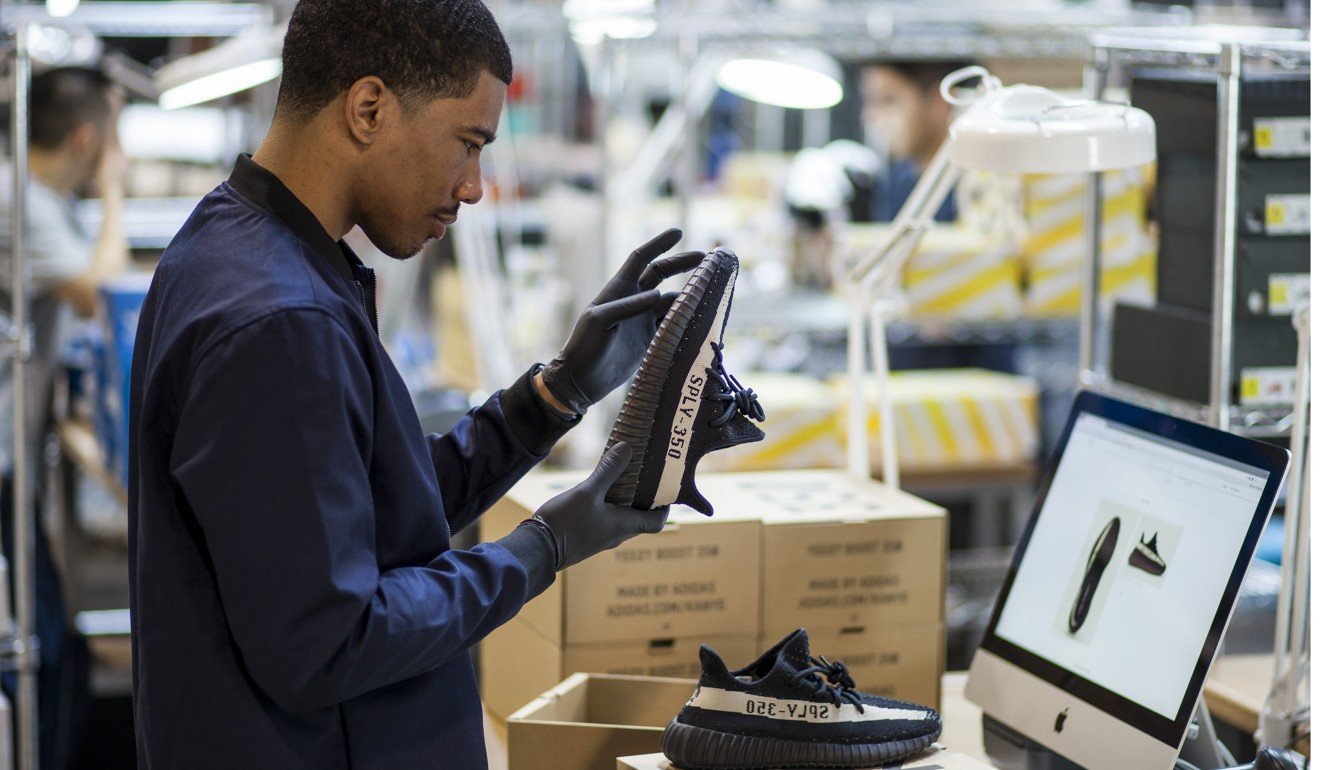
Goat, in the simplest terms, is a marketplace – a middleman between buyer and seller. But in the world of sneakers, that means so much more.
“Instead of the seller shipping [the shoes] directly to the buyer, the seller actually ships to one of our warehouses. We authenticate it. It’s not just authentication, but it’s quality control. So that if you buy a new size 11 shoe, you're going to get a new size 11 shoe that's not going to be pre-worn. We make sure the buyer gets taken care of the whole way through. And we deal with all the messy issues that happen in the traditional marketplaces,” says Lu.
The idea for Goat came from Sugano’s own eBay horror story – purchasing a US$400 pair of Nike Air Jordan V Grapes that turned out to be fake.
“He was really upset about it,” Lu says. “We kept talking about why, in this day and age, you can spend US$400 on something and still be worried if it’s real or fake?”
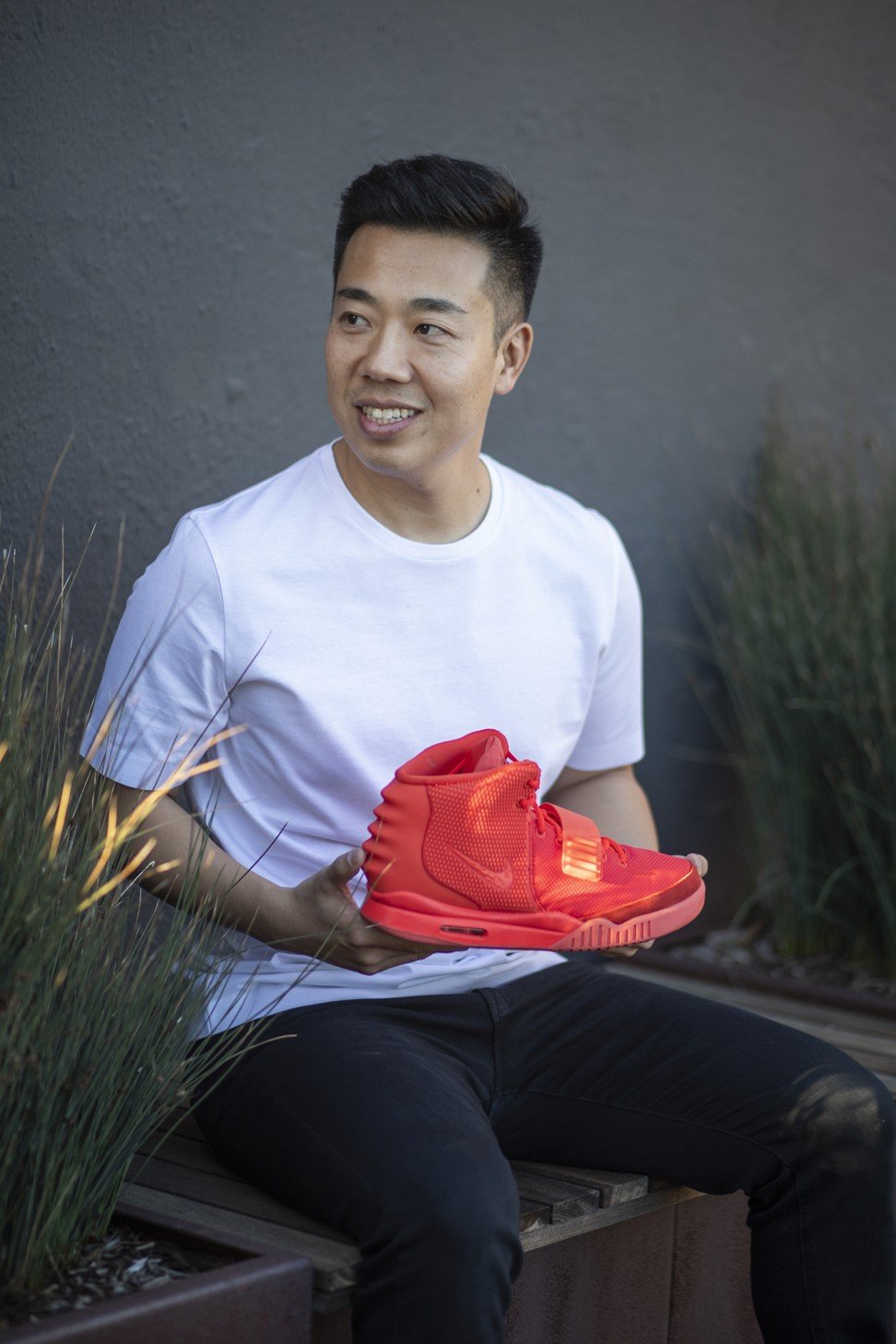
In 2016, the global fake goods market was worth US$461 billion, according to a report from the Organisation for Economic Co-operation and Development. Footwear was the product counterfeited the most.
So it’s not hard to see why Goat’s meteoric rise is underpinned by its ability to authenticate sneakers for the buying public. Goat authenticate shoes via computer algorithms and a team who look at everything from factory provenance and production numbers, to subtler points such as unique detailing and, Lu says, even “the smell out of the box”.
“For the good fakes, you can’t just rely on pictures and algorithms. There’s just no way. Because it’s not just the look of the shoe. It’s the feel of it and the smell, actually. It’s funny, because with a fake factory, when they make products, the smell is different from a traditional Nike factory. You get that Nike new car smell when you open a box of Nike sneakers,” he says.

Last year was a stand-out year for Goat: it merged with the iconic bricks-and-mortar sneaker company Flight Club and received US$60 million in investment from venture capital firm Index Ventures.
Now firmly established, Lu says 150,000 sneaker sellers are using Goat’s marketplace, and that includes people selling shoes on a one-off basis to power sellers.
“In 2017, some of our top sellers surpassed about US$2 million in sales each. In 2018, our top seller surpassed US$10 million in sales. So there are pretty massive businesses using our platform now,” Lu says.
10 ‘ugly’ dad sneaker styles to steal the show like Bella Hadid
Goat’s fast-paced growth has even moved Foot Locker, the dominant bricks-and-mortar sneaker retailer, to invest in the company, perhaps in a move to collaborate rather than compete with a future rival.
In early February, Foot Locker made a US$100 million strategic investment in Goat that “will combine efforts across digital and physical retail platforms to create exclusive customer experiences”.
Sneakers have become a multibillion-dollar industry and sneaker collecting is no longer a niche pursuit. Along with dedicated sports companies such as Nike, Adidas and Puma, the shoes are now significant revenue drivers for luxury fashion companies, including Balenciaga and Valentino, each pair retailing for thousands of dollars.
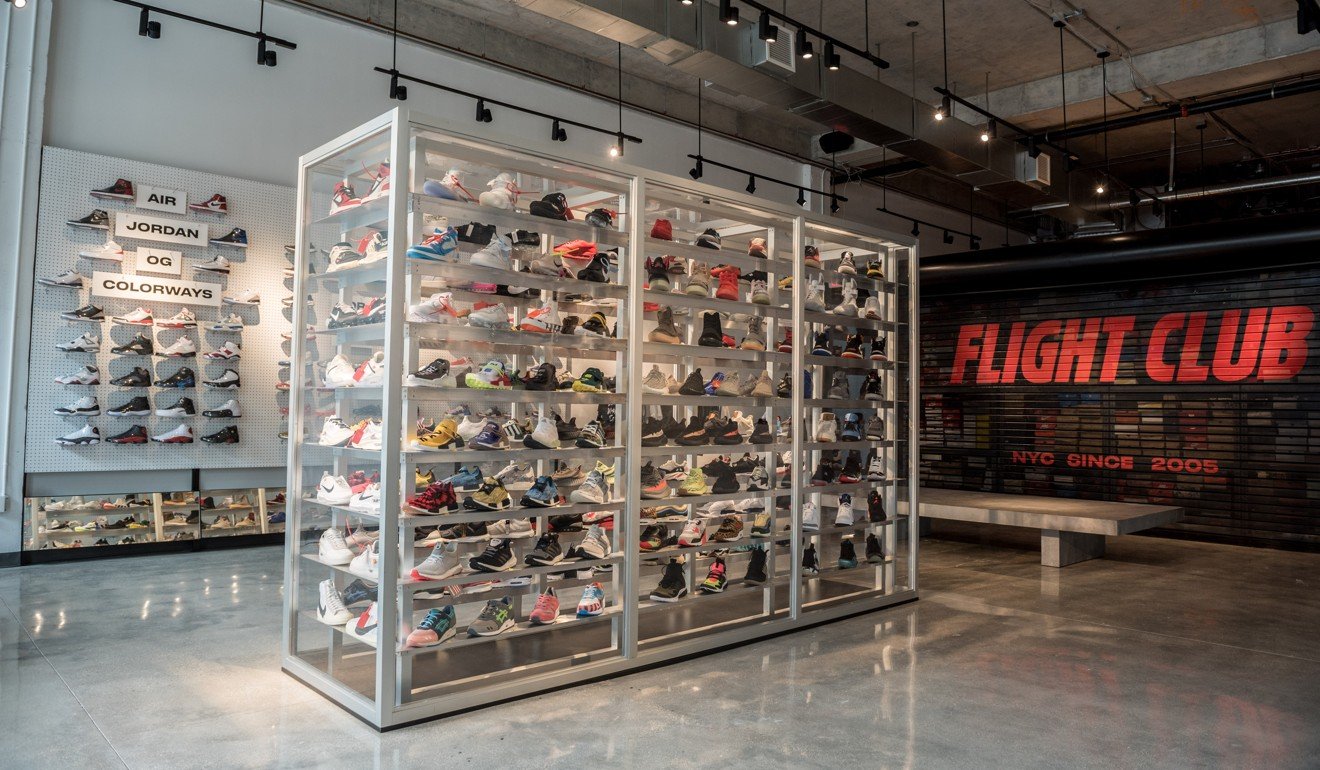
“Work and lifestyle is trending more casual now,” Lu explains. “Before, you went to work, you had to wear your loafers, you had to wear dress shoes, you had to wear heels. The new generation of the workforce is … a lot more casual, people can wear sneakers now.”
The luxury fashion industry has created greater demand for collectible sneakers and will continue to do so, he adds. “We’ve seen on the runway now a lot of the high-fashion companies just rocking sneakers. The Balenciagas and the Guccis are creating really iconic, valuable sneakers. So it's just this whole shift into sneakers. It started with hip hop and streetwear, but now it's high fashion brands saying, ‘Yes, this is the future.’”
Goat’s rise has been rapid, but for founders Lu and Sugano the company’s success is the culmination of years of mixed results in the start-up scene. Friends from college, and later roommates, the duo had long harboured dreams of quitting their well-paid, but unfulfilling, corporate jobs and diving head first into the world of apps.
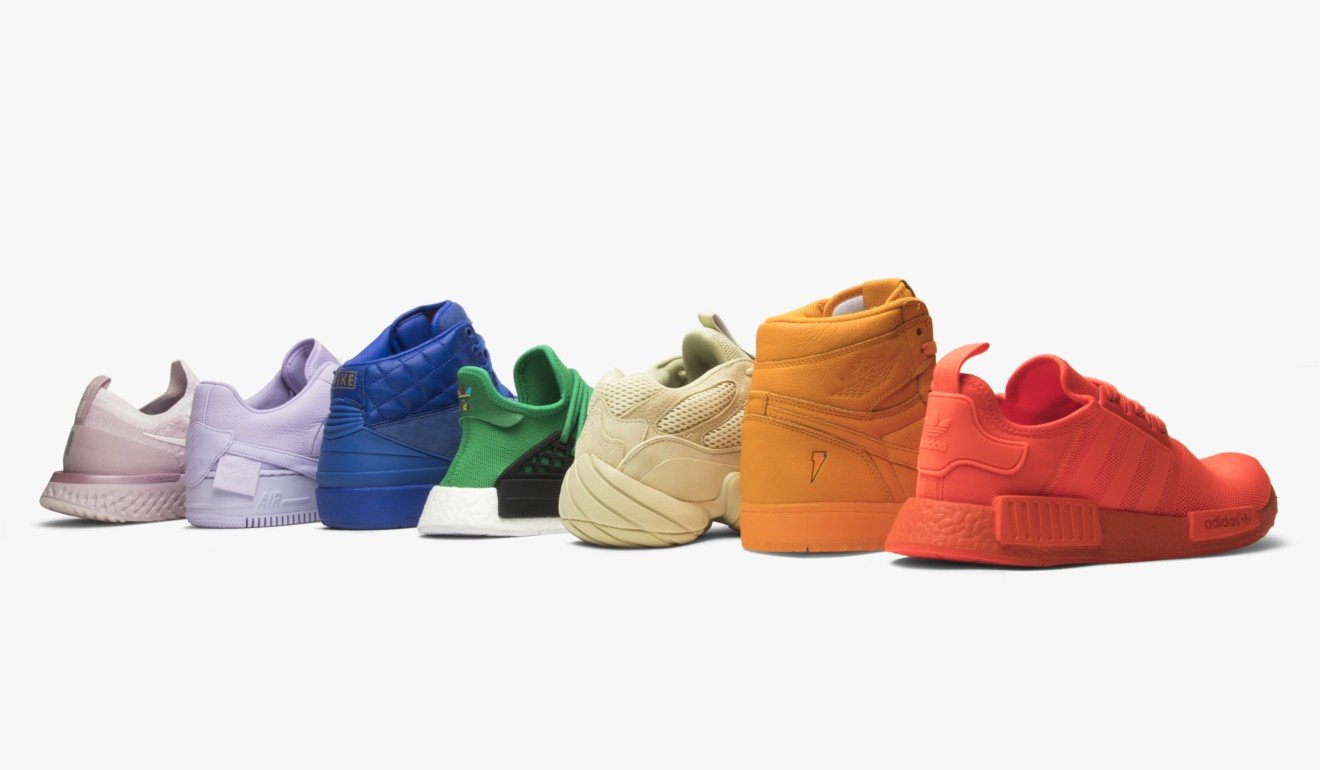
“Every single night, when Daishin and I would come home, we would just talk and we’d be like, ‘Let's create a business’. It wasn’t even a start-up back then. The word ‘start-up’ didn’t even exist,” Lu says.
In 2007, Lu, who worked for investment bank Lehman Brothers, and Sugano, who had worked on various start-ups, made the decision to quit their jobs.
“We did it the same exact day, even though we didn’t have an idea, and said: ‘We’re still young, let’s just figure it out.’”
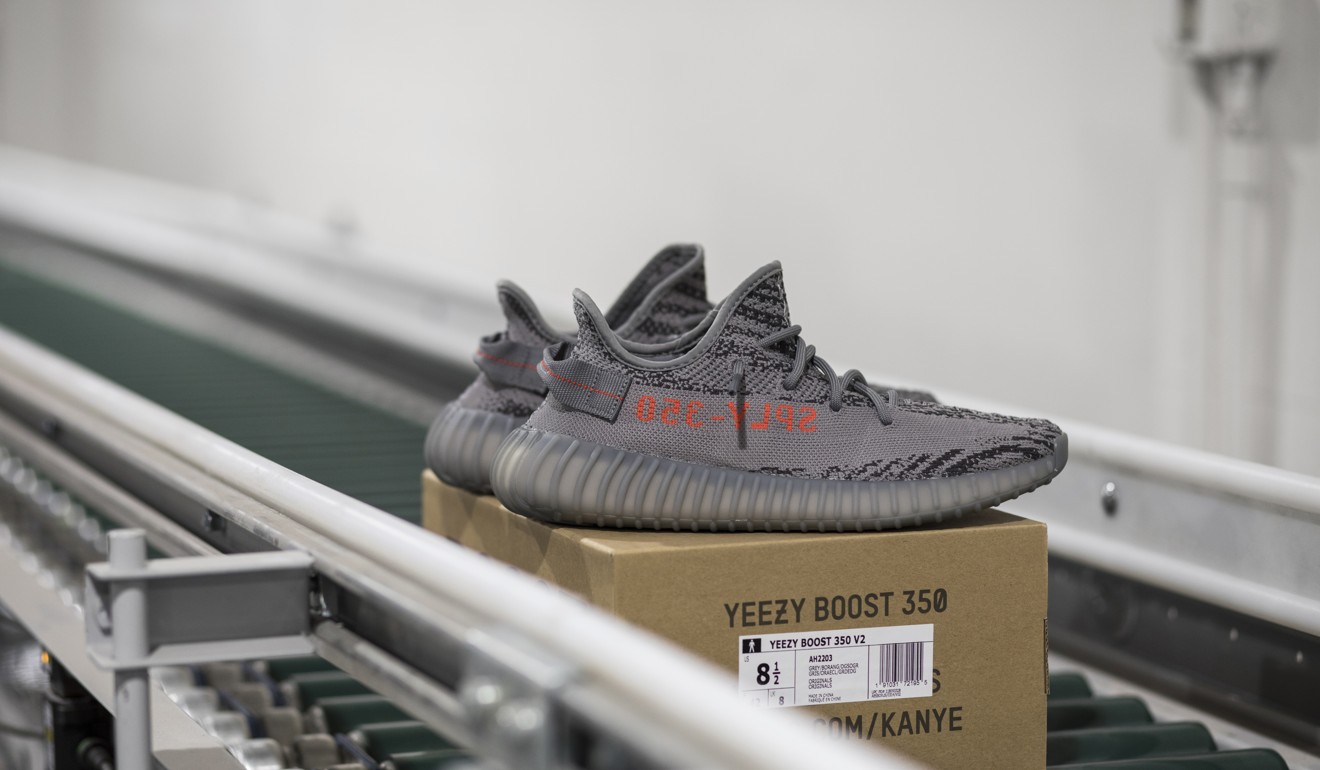
They spent a few years making a living creating 99 cent apps for the then new Apple app store. “We tried to do everything under the sun. We built a lot of those crappy joke-of-the-day apps, fart apps and all that stuff. We actually built an app a week, just to crank these things out,” Lu says.
The pair had become serial entrepreneurs and even ran a franchised Beard Papa’s cream puff store. Their first big break, at least outwardly, was the start-up GrubWithUs, a group dining app where people bought tickets to dine at restaurants with strangers.
Why Australia is a player in global sneaker market and how China is driving the sales boom
“GrubWithUs was a great idea in theory, but in reality there are so many friction points. People had issues with everything: ‘Oh, the meal’s too expensive. I don’t like the restaurant. I’m kosher. I’m gluten free.’ All these things, and of course ‘What if I'm the only guy?’ and ‘What if I’m the only girl?’”
Despite myriad problems, GrubWithUs enabled Lu and Sugano to raise US$6 million, and even though the app wasn’t going anywhere, they were able to use the funds to pivot to other ideas until one stuck.
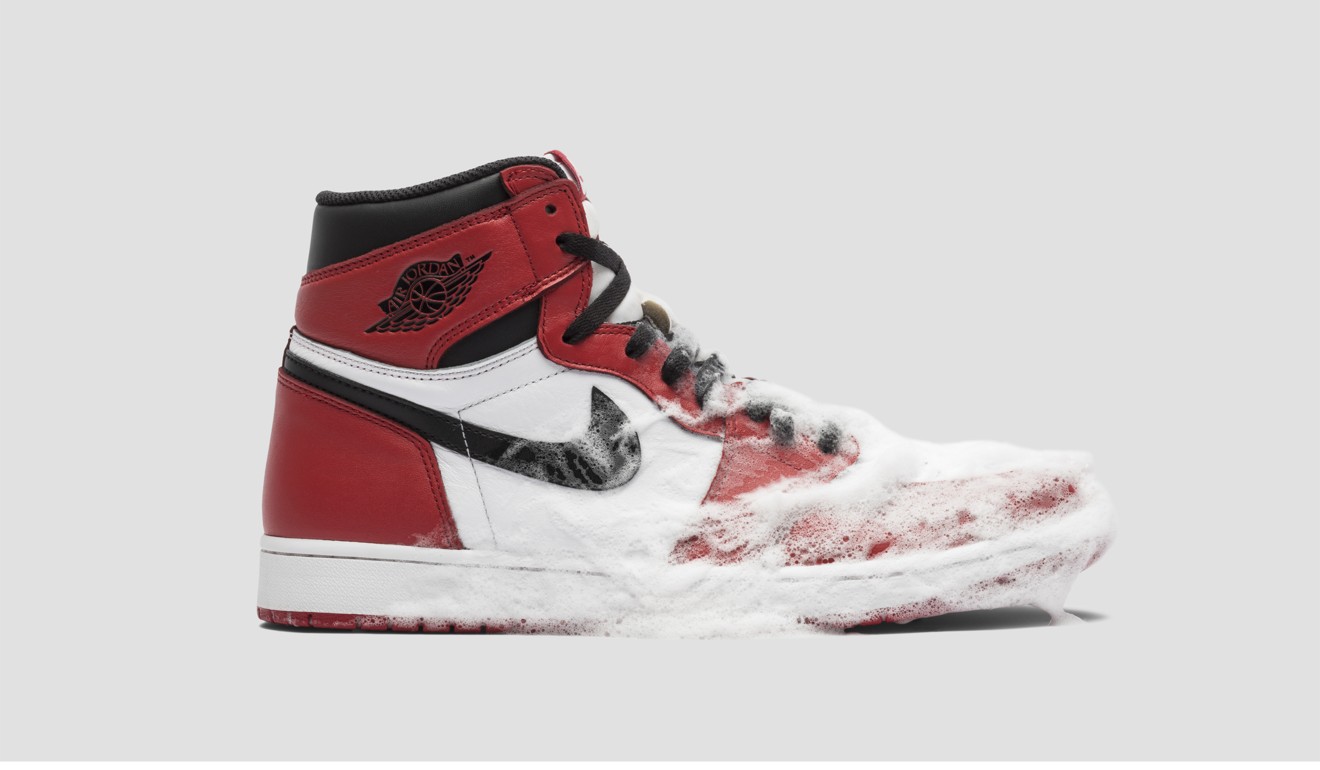
Lu admits that although he liked sneakers, he wasn’t obsessive like Sugano, who owns several hundred pairs of shoes. But he saw a chance to offer a platform that had trust and authenticity at its core, and they ploughed their remaining US$1 million into funding Goat.
The Goat-Flight Club merger is a big indicator for the future of the company, says Lu, with the push to have more physical retail stores in more cities. It is China that looms large, with untapped masses of sneaker collectors swamped by the best fakes in the world.
How Chinese shoppers are fuelling a luxury retail boom in Australia
“The fakes in China are crazy good, but it’s the details they get wrong. They might make a shoe perfect, but the production date on the label is wrong because Nike only had a production run of this month to this month, for example,” Lu says.
“It’s scary when Chinese consumers want to buy from Chinese websites such as Taobao, where there’s no or very limited authentication. That’s why they trust an international brand more, because the stuff’s coming from international sources, not from Chinese sources. There’s double layers of protection. We check every single shoe that comes through.
“We’ve been doing a good job in the US, but now it’s a global market for buyers and sellers of sneakers,” Lu says.

